Your Face-Oil Soulmate Exists—12 Options for All Skin Types, Backed by Derms and Editors
Yes, even acne prone.
Alyssa Brascia
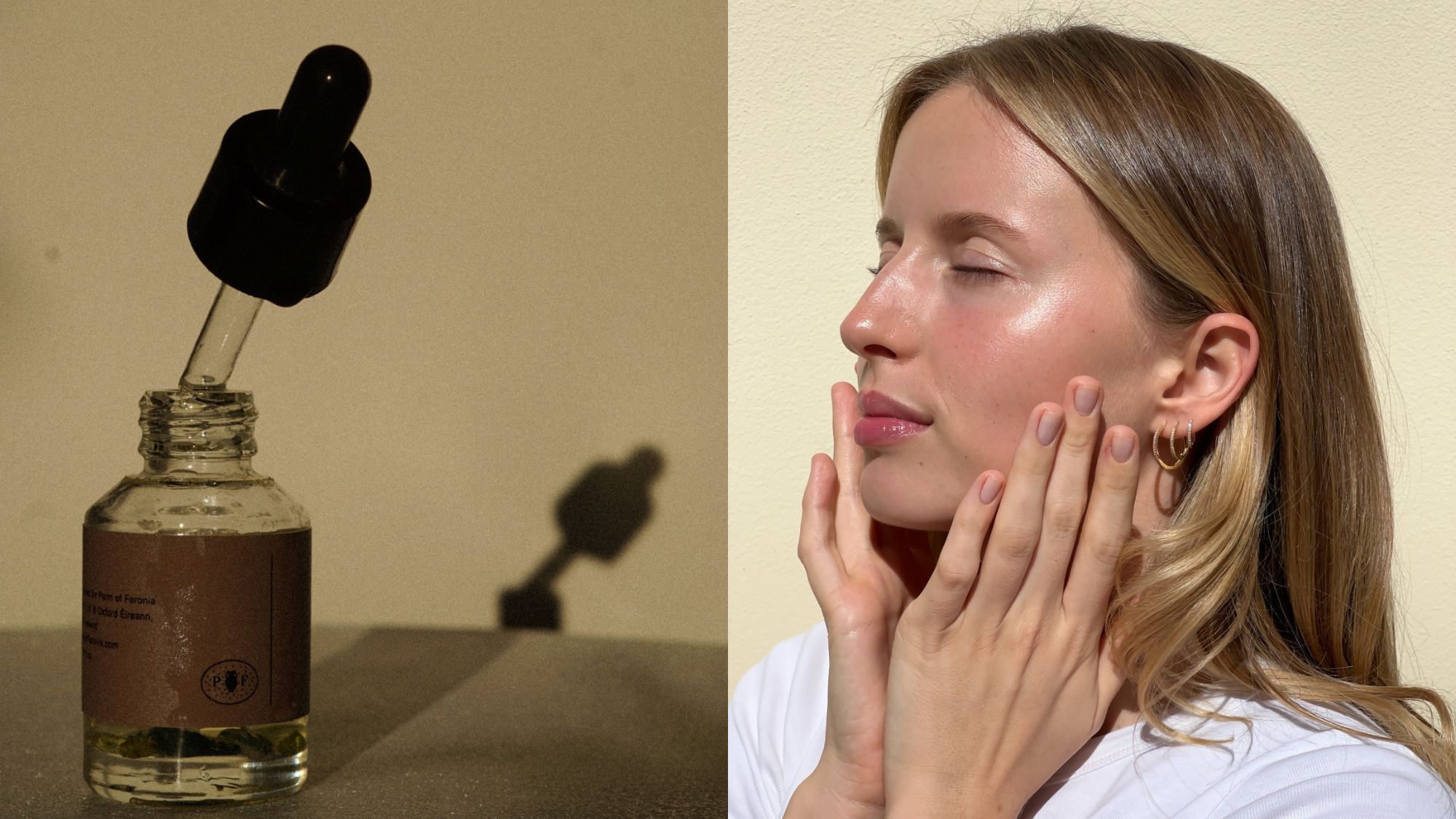
It's a common myth that those with acne-prone skin can't use face oil. In truth, some facial oils can benefit acneic skin, calming irritation and fading the dreaded dark spots that arrive post-breakout. But that's not all. These nourishing elixirs can provide much-needed balance to oilier skin by curbing extra oil production while also quenching dry skin and balancing combination complexions. Basically, there's a face oil for every skin type.
"A great face oil should absorb well, strengthen the barrier, and enhance overall skin resilience," says Dendy Engelman, MD, a board-certified dermatologist and Mohs surgeon. In general, Engelman says that the best oils are thoughtfully formulated with "high-performance, skin-identical lipids that support the skin barrier rather than sitting on top of it." Luckily, many dermatologist-approved formulas fit this bill, and we've tested a handful to be extra sure.
Adding face oil to your routine is generally a good idea, but if you need more convincing, you'll want to keep scrolling for our comprehensive guide to each skin type's facial-oil soulmate. Yes, it exists, and your skin will thank you. Read on to find out which one is yours.
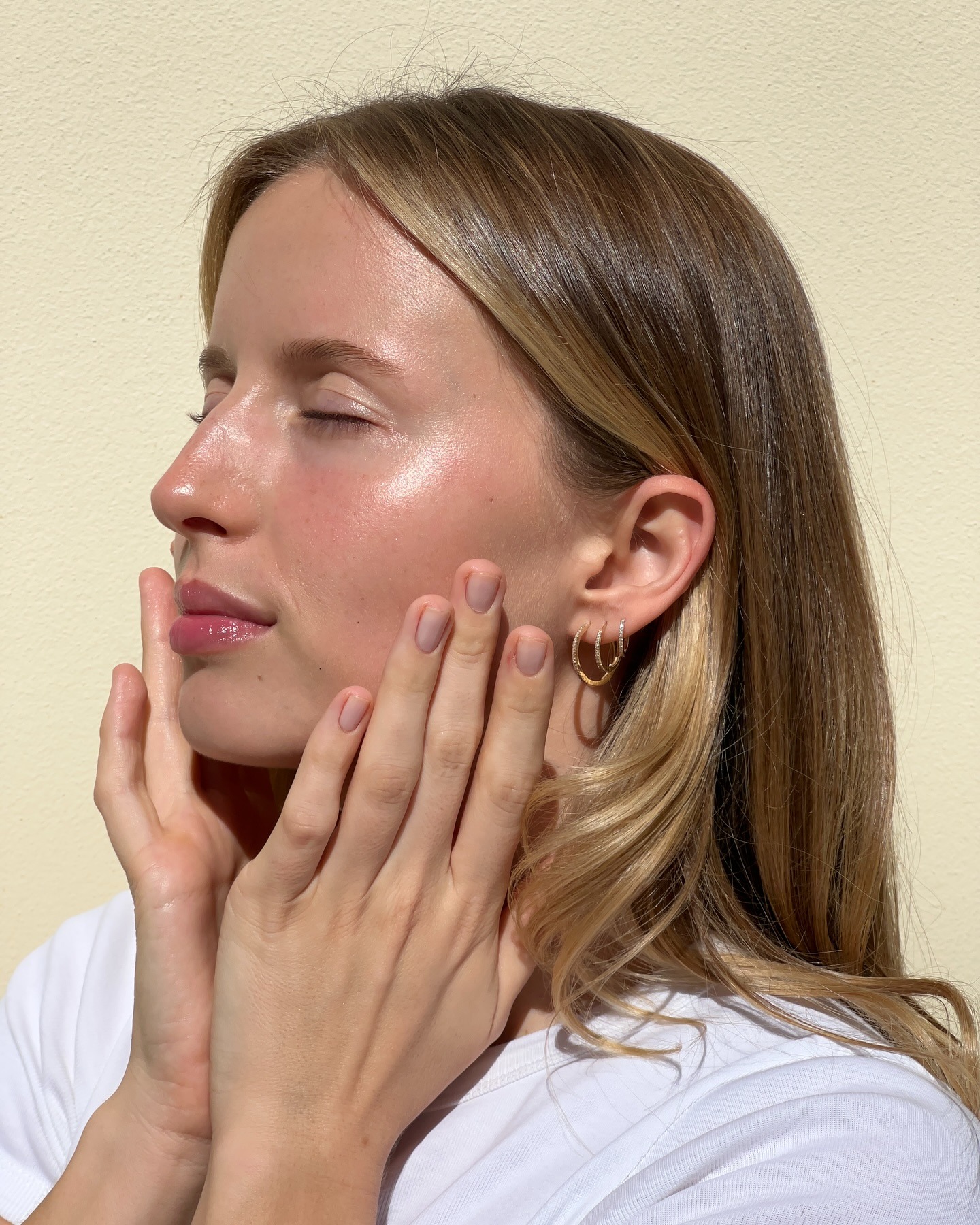
The Best Face Oils of 2026 at a Glance
- Best Overall: Furtuna Skin Biphase Moisturizing Oil
- Best Budget: The Ordinary 100% Plant‑Derived Squalane
- Best for Dry Skin: Elizabeth Arden Eight Hour Cream All-Over Miracle Oil
- Best for Acne-Prone Skin: Sunday Riley U.F.O. Ultra-Clarifying Face Oil
- Best for Sensitive Skin: Biossance 100% Sugarcane Squalane Oil
Best Overall: Furtuna Skin Biphase Moisturizing Oil
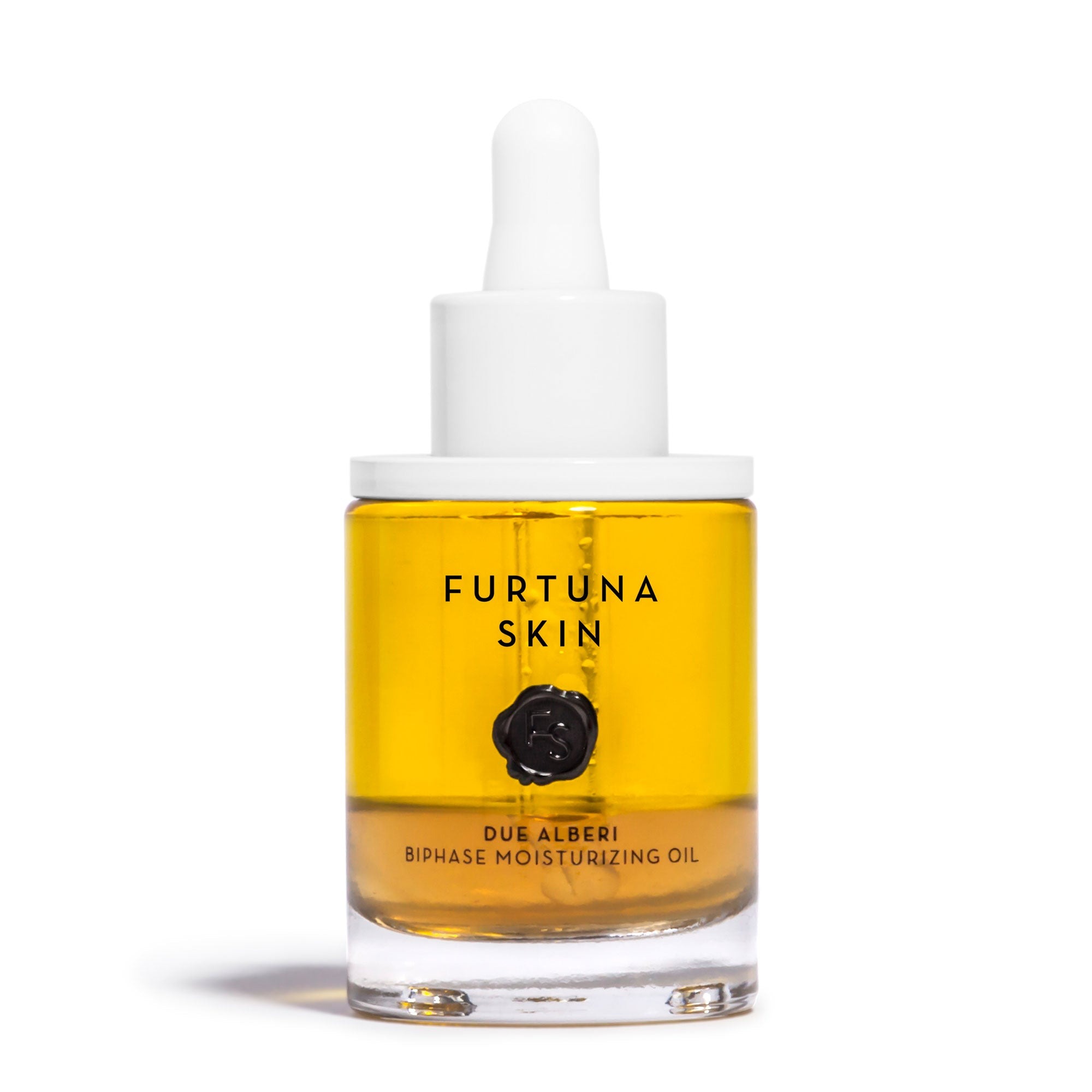
Pros: Repairs the moisture barrier, deeply hydrating, noncomedogenic formula
Cons: Quite expensive
Key ingredients: Vitamin C, magnolia oil | Skin type: All
Celebrity facialists and board-certified derms agree: This ultra-hydrating and nourishing oil from Furtuna Skin is a favorite. It may be pricey, but its unique formulation and incredible benefits make it worth the splurge. "This face oil provides instant hydration after cleansing and is great for all skin types," says Engelman. "I love to layer [it] under a thick moisturizer during the dry winter months for an extra seal of hydration."
The formula contains a medley of gentle, moisturizing, noncomedogenic oils, like squalane, magnolia, and olive oils, making it great for all skin types. It also contains lactobacillus ferment to support skin-barrier function and vitamin C to kick-start collagen synthesis within your skin. I use it myself, and it's been the most-used oil in my rotation for months.
Customer review: "I have rosacea and very sensitive skin, and this did not cause any reactions at all and makes my skin feel so nourished and glowy. It also helped quite a bit with crepey skin on my neck as well."
Best Budget: The Ordinary 100% Plant-Derived Squalane
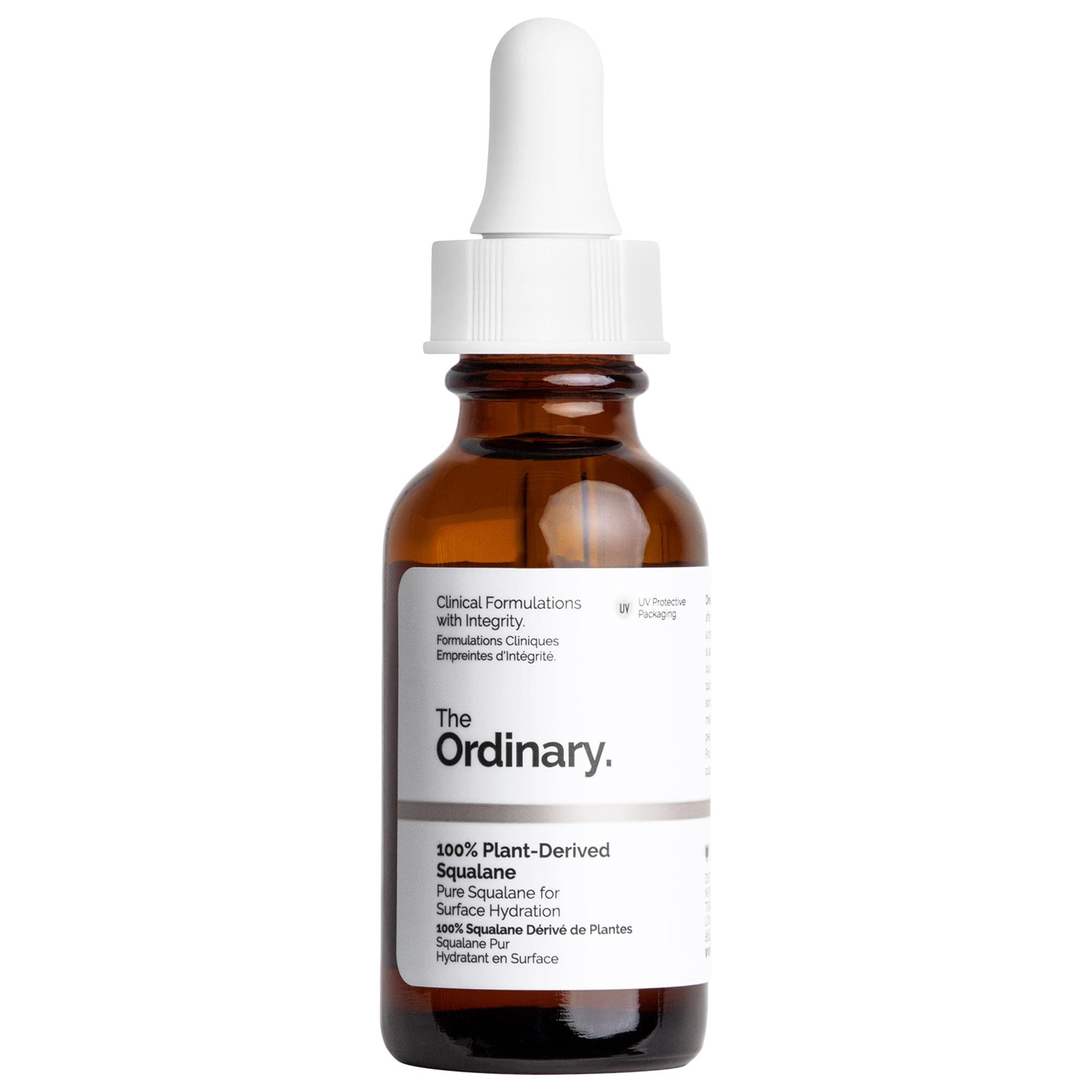
Pros: Lightweight texture, hydrating formula, versatile usage
Cons: None
Key ingredient: 100% plant-derived squalane | Skin type: Normal, dry, combination, oily
If you're looking for one of the best oils to boost hydration, squalane oil gets the job done. This affordable version is one of The Ordinary's best sellers and a top recommendation from Engelman and board-certified dermatologist Jenna Queller, MD, FAAD, for its fast-absorbing, moisture-sealing benefits. "Lightweight and noncomedogenic, this squalane oil mimics your skin's natural lipids to lock in moisture without heaviness," says Engelman.
Queller also vouches for the efficacy of this oil's sole ingredient. "Squalane is very similar to the natural oils (sebum) your skin produces, so it hydrates without feeling heavy or greasy," she explains. "It's especially good for sensitive [and] extra-dry skin, as it helps strengthen the skin barrier while leaving a soft, dewy finish," Engelman adds.
Customer review: "I absolutely love this oil. It's nourishing and gives my skin a bright, healthy glow. I have naturally oily/dry combo skin and use it most nights. The morning after, my skin is always smooth and soft. It has done wonders for my skin's flaky dryness… It has also helped a lot with my chronic chapped lips. This will always be a staple in my skincare routine."
Best Drugstore: Burt's Bees Rejuvenating Facial Oil
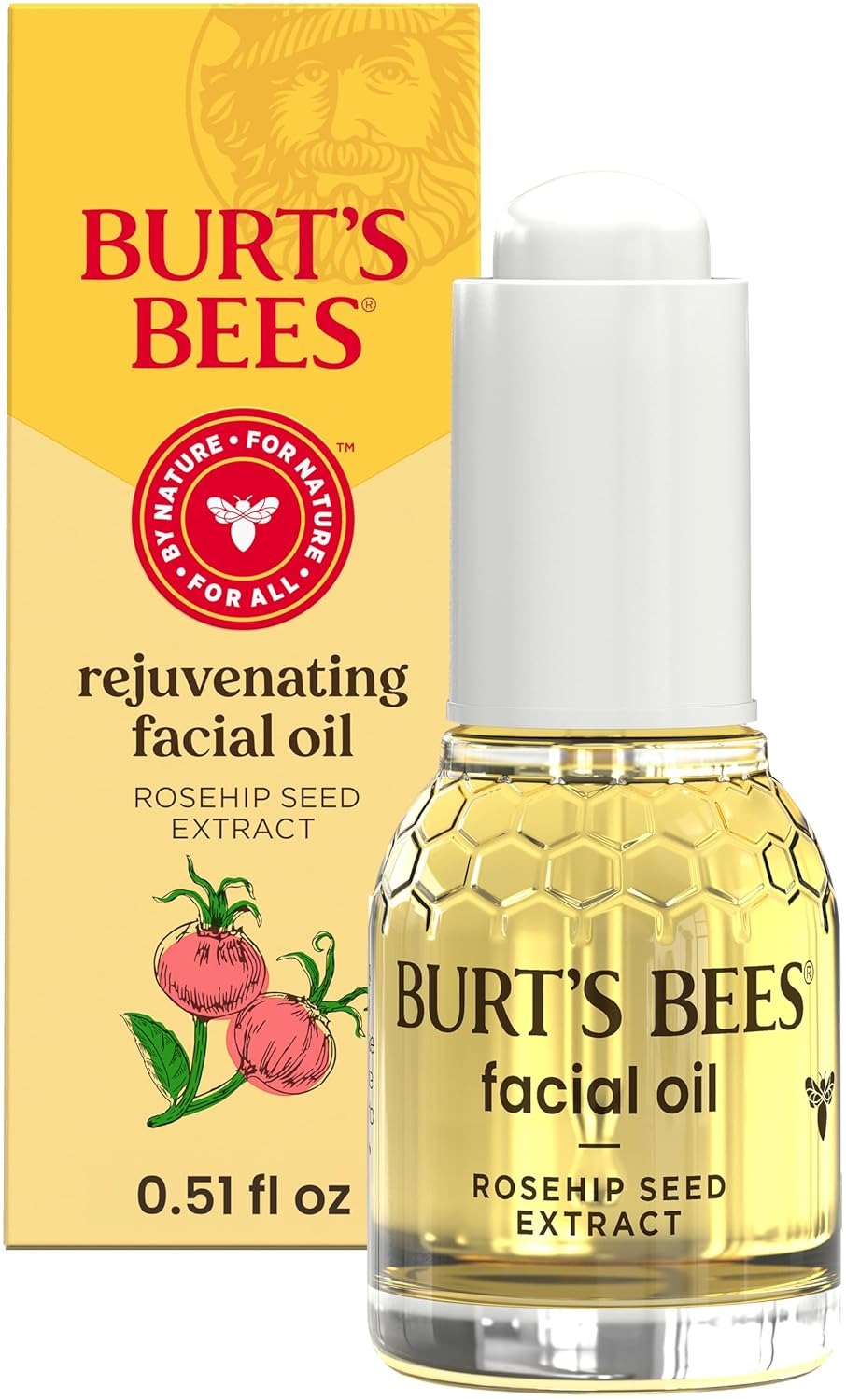
Pros: Contains essential fatty acids, brightens skin, minimizes fine lines
Cons: Very small bottle
Key ingredients: Evening primrose, jojoba oil, rose hip extract | Skin type: Normal, dry
If you're a fan of Burt's Bees lip balms, you'll love the brand's nourishing facial oil. This slippery formula does more than just offer a smooth glide for your daily gua sha routine. It also contains a blend of rose hip, jojoba, and evening primrose oils to provide long-lasting hydration, and when used consistently, it can even reduce the appearance of fine lines and wrinkles.
Customer review: "My skin is very sensitive to change, and this product caused no reaction… From the very first day of use, I noticed a big change in my skin. The small wrinkles around my eyes were almost completely gone! I have used lots of different eye products, some very expensive, and none have worked like this!"
Best for Dry Skin: Elizabeth Arden Eight Hour Cream All-Over Miracle Oil
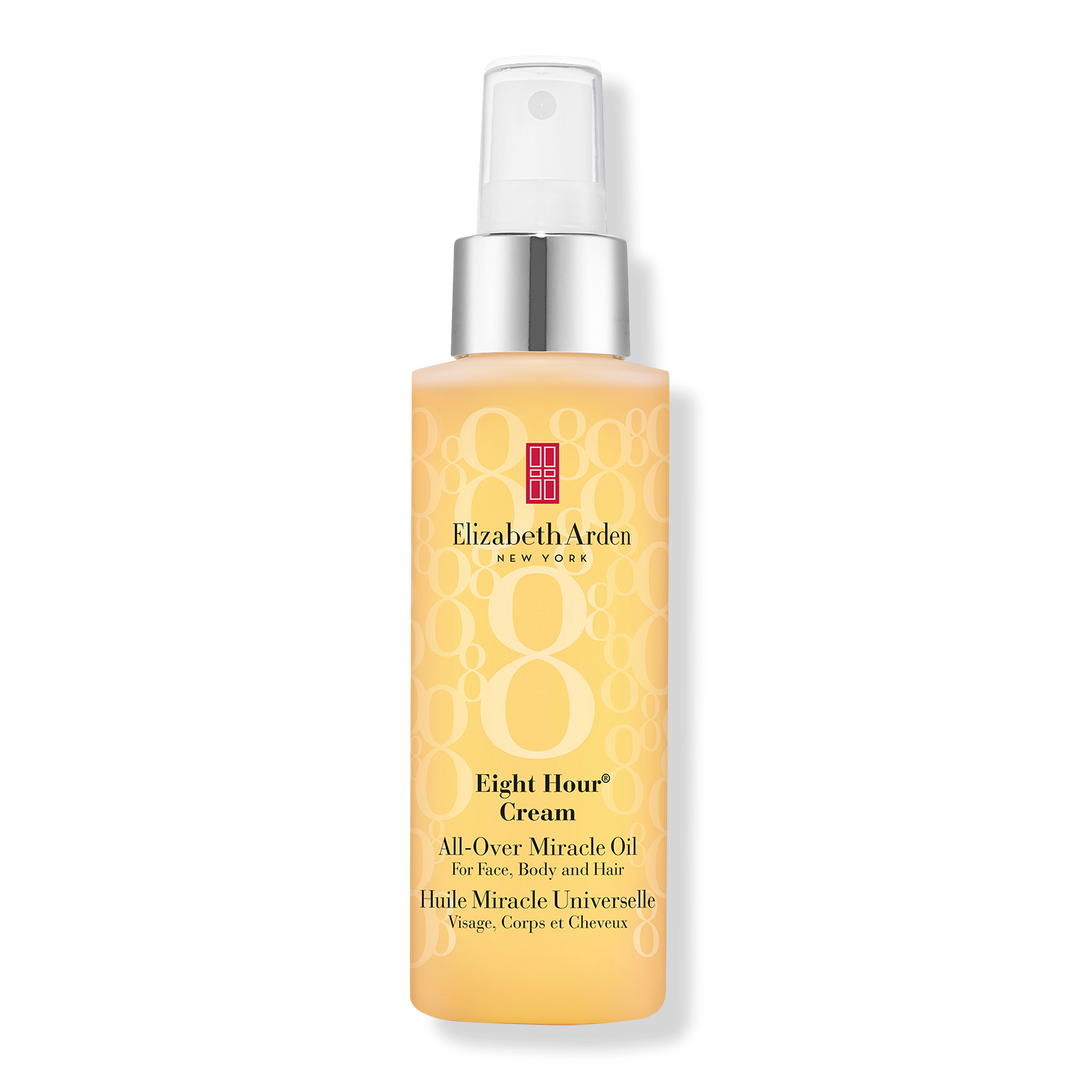
Pros: Versatile formula, offers long-lasting hydration, lightweight texture
Cons: Some people may not prefer its spray mechanism
Key ingredients: Vitamin E, gingerroot extract, tsubaki oil | Skin type: All
If quenched skin is what you're after, look no further than this Miracle Oil from Elizabeth Arden. Engelman calls out this face, hair, and body oil spray as a cult favorite for its lightweight formula that offers deep hydration, a nourished glow, and smooth skin without thick, oily residue. "It smooths dry skin, enhances radiance, and even adds shine to hair thanks to tsubaki oil and essential fatty acids," she explains. "It's beautifully versatile for daily face use or as a final step to lock in moisture and seal your skincare routine."
Customer review: "Love the Eight Hour Cream All-Over Miracle Oil. I use it [every day] right before bedtime. Keeps my sensitive skin so soft and free of breakouts."
Best for Acne-Prone Skin: Sunday Riley U.F.O. Ultra-Clarifying Face Oil
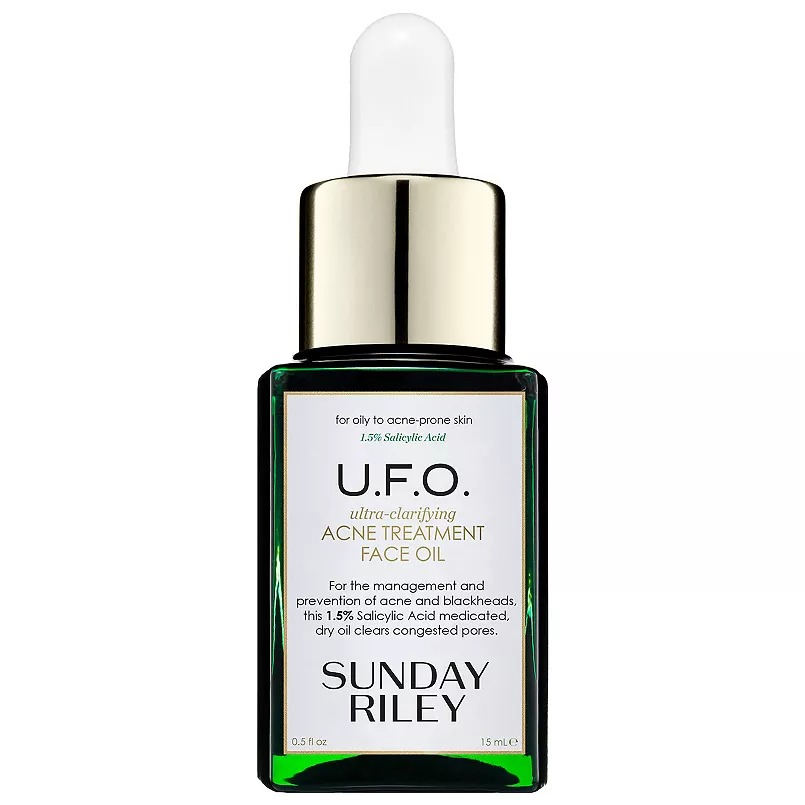
Pros: Clarifying formula, noncomedogenic, supports clear skin
Cons: Expensive, has a strong smell
Key ingredients: Tea tree oil, salicylic acid, black cumin seed oil | Skin type: Oily, combination, acne-prone
You may count yourself out of the face-oil category if you have acne-prone skin, but this oil proves that these products may be more inclusive than you once thought. A strategic blend of tea tree oil, salicylic acid, and black cumin seed oil combats breakout-causing bacteria, and additional ingredients like hexylresorcinol and licorice gently brighten the skin to even out lingering scars and pigmentation.
Customer review: "I've been repurchasing this face oil for years, so I figured it deserves a review. I typically use it at night before my moisturizer and have found it works great for preventing acne and not so much for getting rid of existing pimples… It also feels super hydrating and refreshing, which is amazing for my dry skin because some salicylic acid products can feel drying."
Best for Combination Skin: Le Prunier Plum Beauty Oil
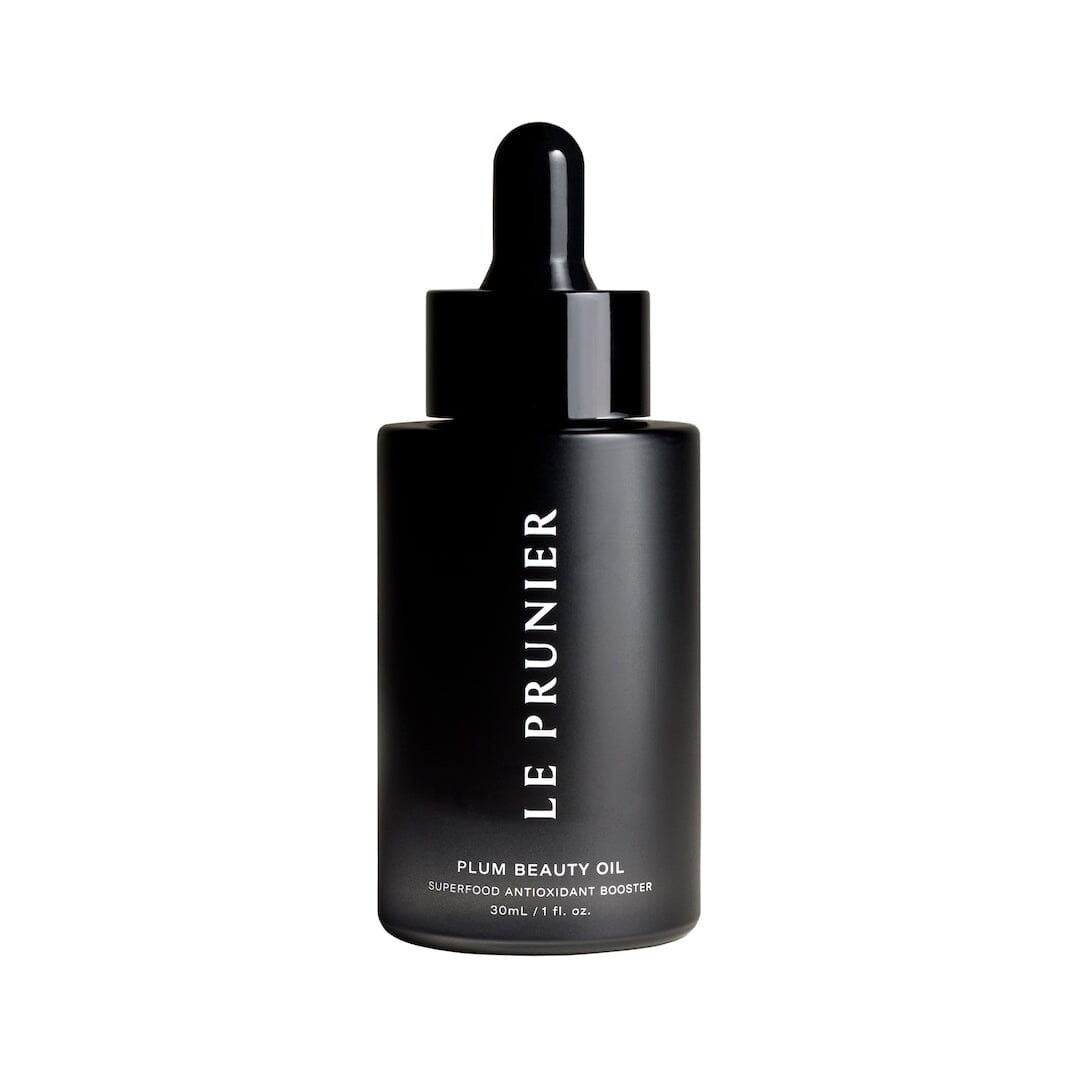
Pros: Balances congested combination and sensitive skin; weightless texture; protects against environmental damage
Cons: Expensive
Key ingredient: 100% pure plum oil | Skin type: All
Le Prunier's plum oil does it all—hydrates, protects, balances, and soothes every skin type. California-based aesthetician Katie Sobelman spotlights this formula for its "balanced blend of fatty acids, high antioxidant activity," and tangible brightening powers, which make it well worth the higher price tag. This elixir is deeply hydrating yet safe for sensitive skin since it only contains plum oil. If you tend to get oily in certain areas and dry in others, this will also balance hydration and sebum production to level the playing field. This is currently one of the most-used face oils in my rotation because of how hydrating and brightening it is without feeling greasy.
Customer review: "This oil is worth every penny! It smells divine, simplifies my skincare routine, and cleared up a chronic dry spot under my eye. I've only been using it for a couple of weeks, but I'm excited for the long-term benefits."
Best for Sensitive Skin: Biossance 100% Sugarcane Squalane Oil
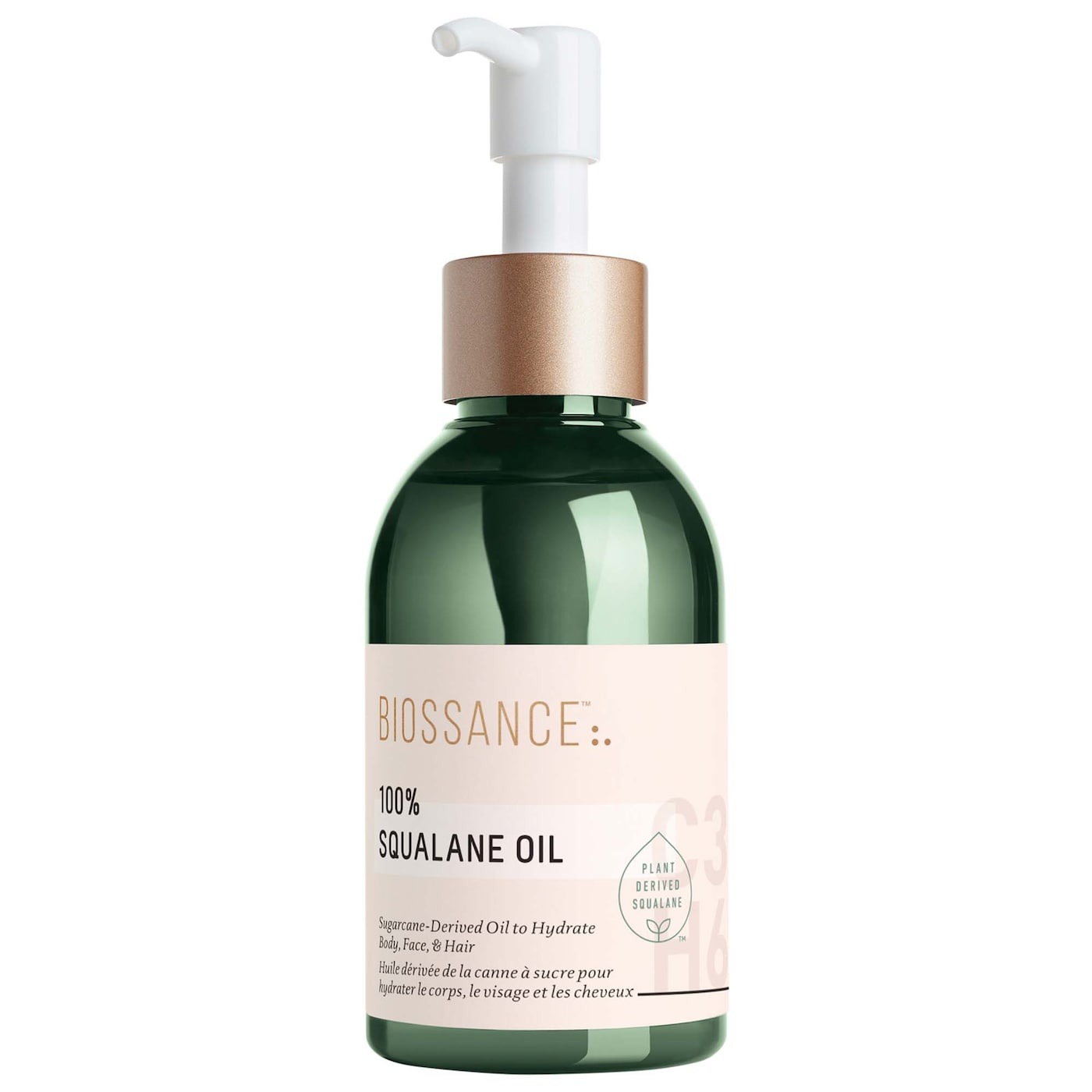
Pros: Noncomedogenic formula, lightweight texture, reduces redness
Cons: May be too light for dry skin
Key ingredient: 100% sugarcane squalane | Skin type: Dry, normal, combination, sensitive
As someone with very sensitive skin, I've found it's best to opt for noncomedogenic and one-ingredient face oils, like squalane, rose hip, rose, and so on. This squalane oil from Biossance is a great option because it's totally weightless, repairs a damaged skin barrier, reduces redness, and maintains overall hydration levels. Plus, it comes highly recommended by Engelman and Queller.
Customer review: "Amazing product! [It] hydrates and isn't greasy once it soaks in! Love!"
Best for Sensitive Skin (Less Expensive): Good Molecules Squalane Oil
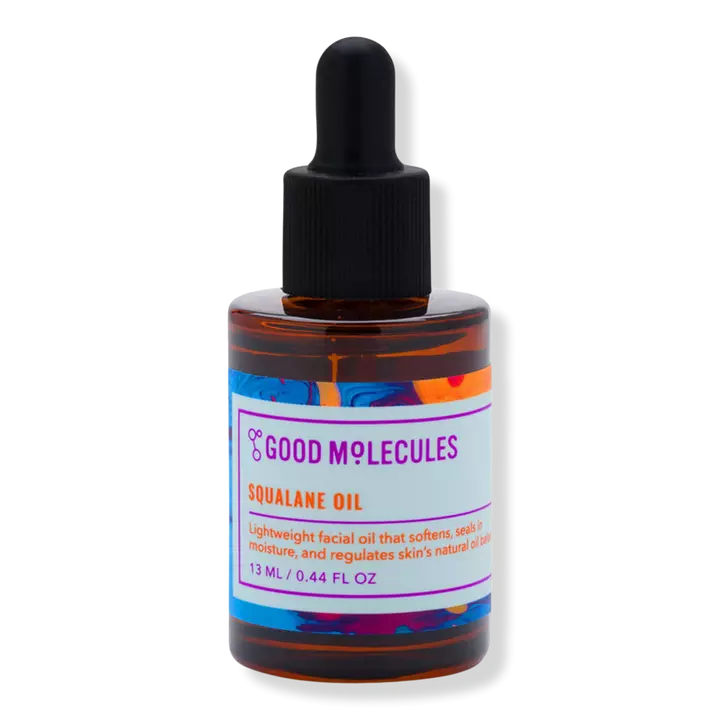
Pros: Well-tolerated by most skin types, calms irritation, low-priced
Cons: May not be hydrating enough for very dry skin
Key ingredient: 100% plant-derived squalane | Skin type: All
Squalane oil increases hydration levels in the skin, repairs a damaged moisture barrier, and even has anti-inflammatory properties. Good Molecules offers a great $9 formula that contains 100% pure squalane oil.
Customer review: "Super oil is more like it! You only need a few drops to seal in your other products. I use this [twice] per day as my last step. I do not use another moisturizer, but I do not have dry skin. I love this product! My foundation glides on my face and I no longer use primer."
Best for Redness: Paula's Choice Moisture Renewal Oil Booster
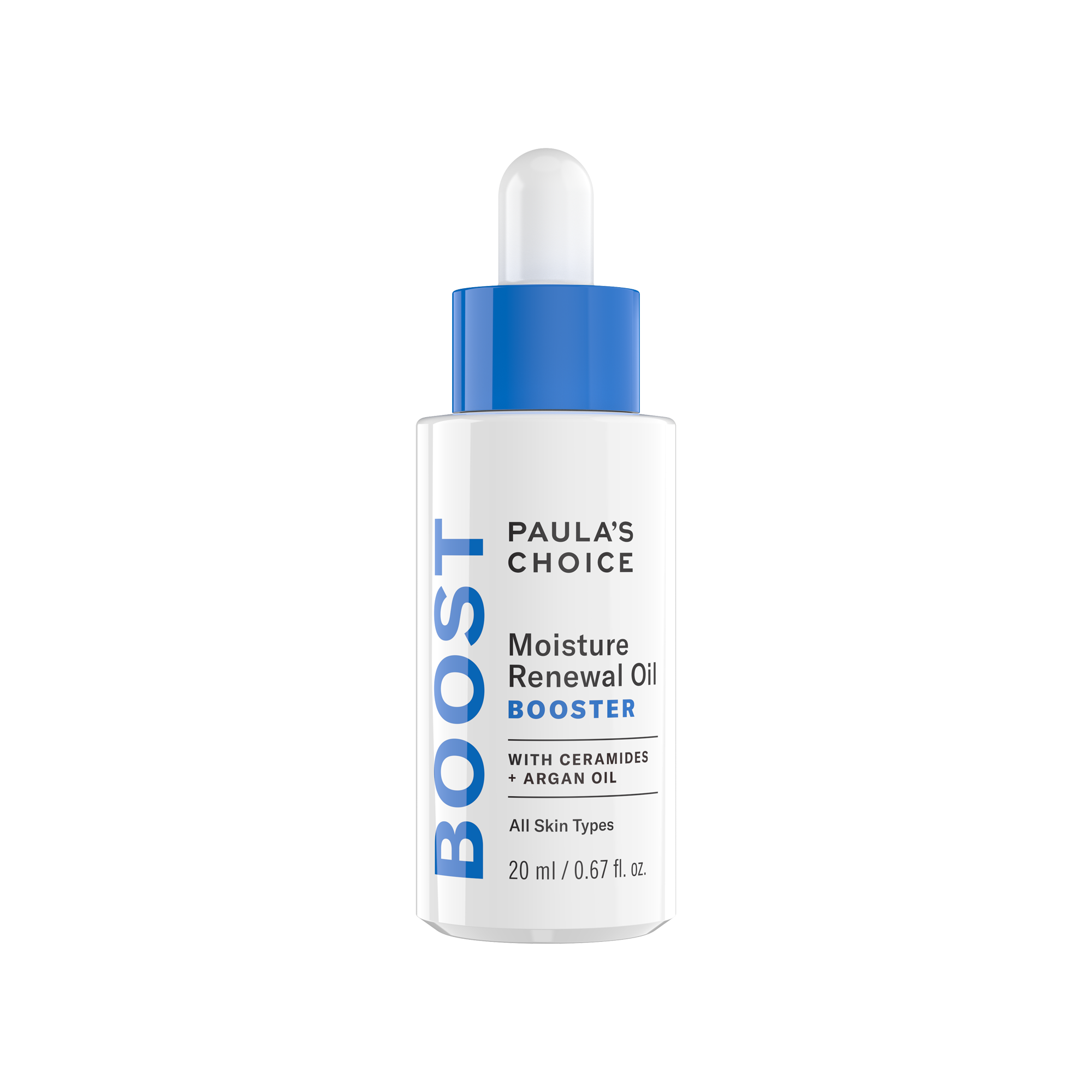
Pros: Deeply hydrating, fragrance-free, gentle formula
Cons: Might not be hydrating enough to use alone
Key ingredients: Argan oil, evening primrose oil, jojoba oil | Skin type: All, especially sensitive (including rosacea)
Those who experience recurring redness will want to add this Paula's Choice oil to their routine. The fragrance-free, skin-loving formula is rich in ceramides, argan oil, and antioxidants that soothe irritation and comfort dry skin, and its ceramide components work hard to repair the skin's moisture barrier during bouts of dryness.
Customer review: "This is one of my favorite oils! It is packed full of great ingredients for your skin and is cheaper than the oil I previously bought from Sephora. I mix it with my moisturizer in the morning and at night before bed, and I have definitely noticed a difference, especially in the dry winter months. It doesn't make my face feel as greasy as some of the other oils I have tried previously, and it doesn't have that sticky feeling."
Best for Irritation: Kora Organics Noni Glow Face Oil
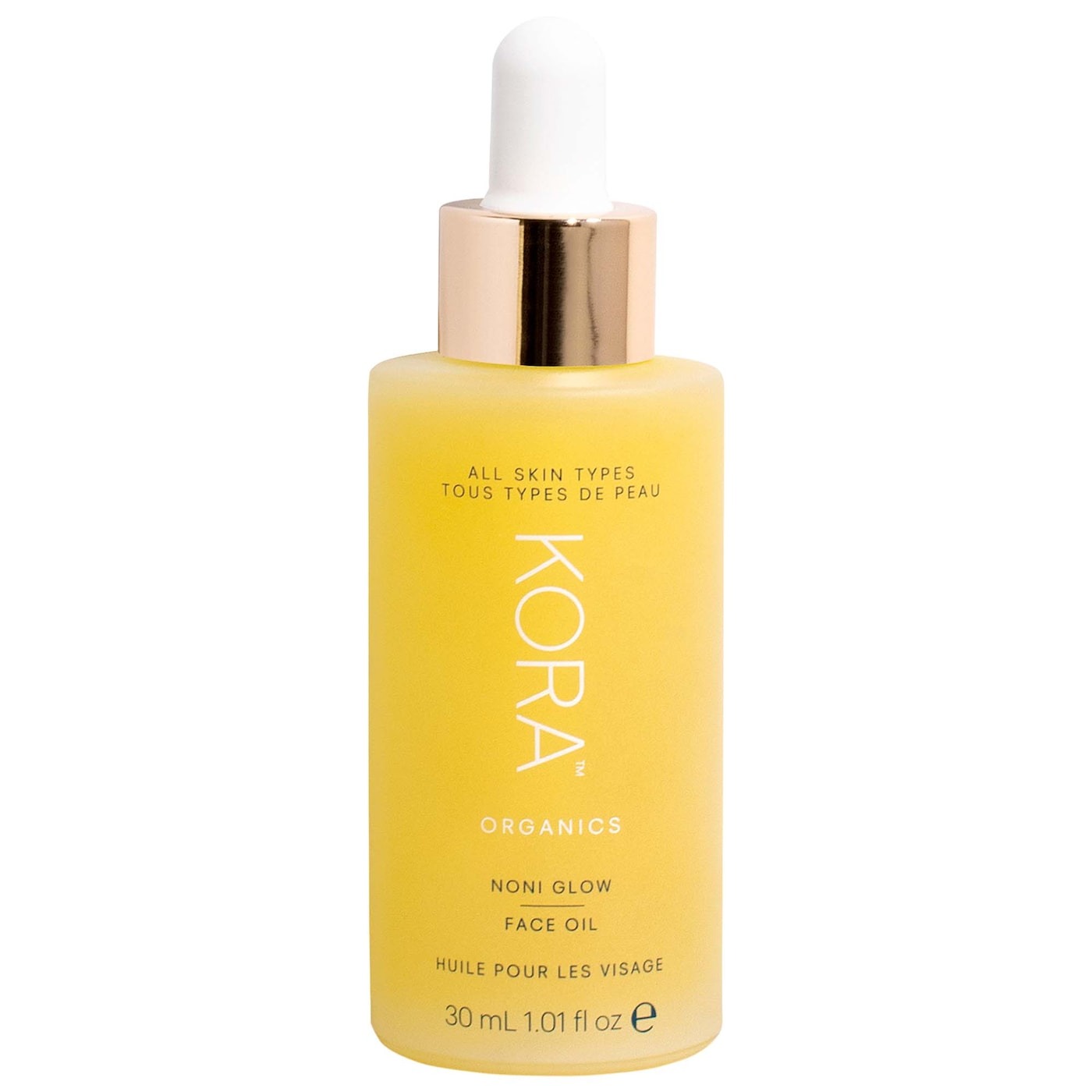
Pros: Boosts radiance, soothes skin, improves elasticity, lightweight
Cons: May not be hydrating enough for dry skin
Key ingredients: Noni fruit, rose hip oil, sea buckthorn | Skin type: Dry, oily, combination
Kora Organics offers this organic oil packed with antioxidant-rich noni fruit and 100 vitamins and minerals. It also contains rose hip oil to soothe sensitive skin and sea buckthorn oil, which is rich in vitamins C and E and omega fatty acids.
Customer review: "This is a holy grail skin product for sure—I've been using this for about two months now, and it has literally changed the texture and tone of my complexion entirely. I apply it at night after the Sephora brand hyaluronic acid serum/moisturizer and wake up literally glowing! Compared to other face oils I've tried, it's a lot less oily and much lighter—so if you're looking for a heavy-duty oil, this isn't it. If you want an oil that can be used daily and soaks in overnight, this is it!!"
Best Organic: Pai Rosehip BioRegenerate Universal Face Oil
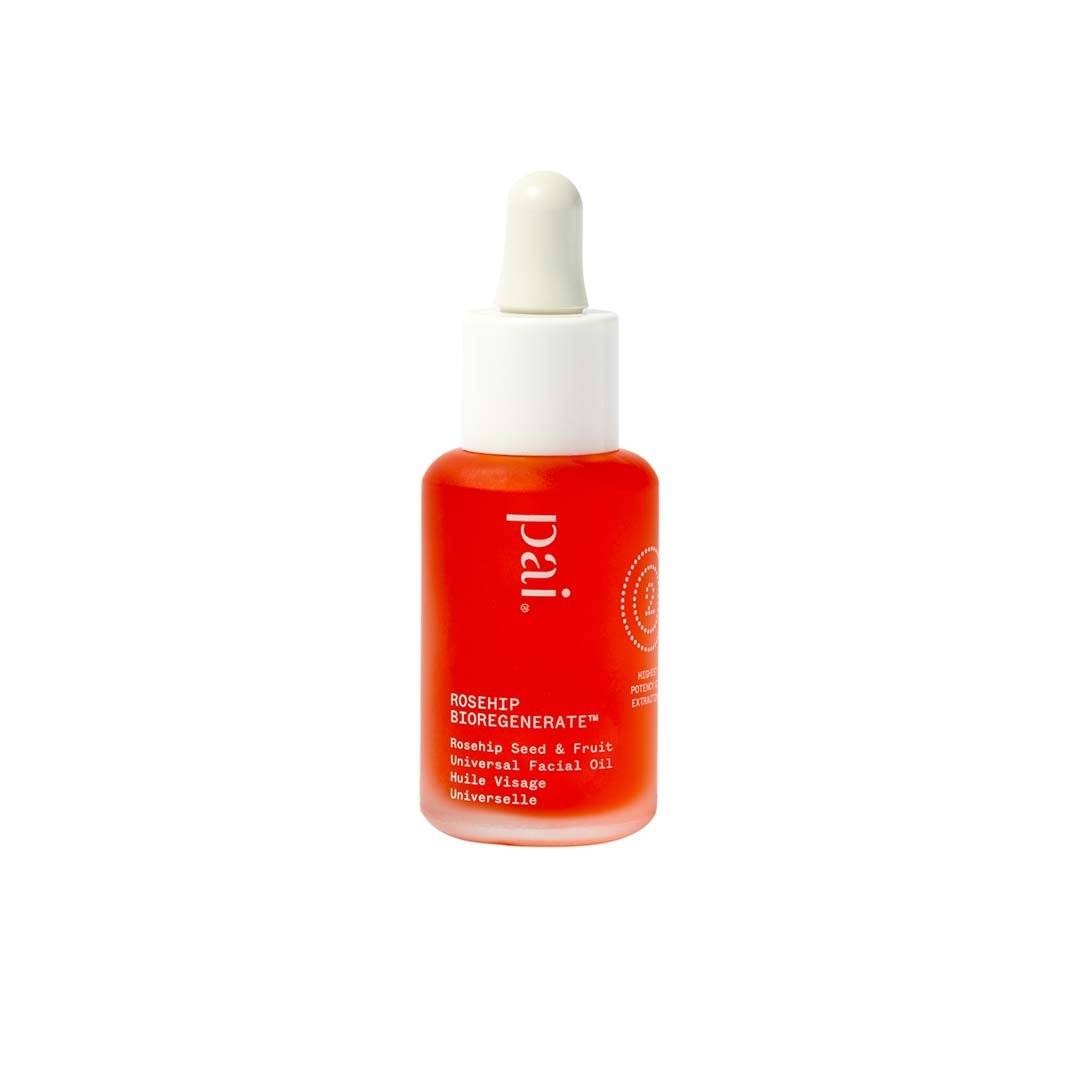
Pros: Boosts firmness and skin elasticity, packed with omega fatty acids, conditions and rejuvenates the skin, great for sensitive skin
Cons: Texture is thicker than other oils
Key ingredients: Rose hip seed oil; rose hip fruit oil; omegas 3, 6, 7, and 9 | Skin type: All, including mature and sensitive
Pai's rose hip oil is a great option for sensitive skin, as it contains just the oil and extract of rose hip along with vitamin E. Although it's light on ingredients, it still does the most by delivering vital nutrients to the skin, like omega fatty acids. It deeply conditions the skin, promotes a clearer complexion, boosts firmness and elasticity, and evens skin tone.
Customer review: "Love that the ingredients are clean and organic. Applied under my moisturizer, [it] holds moisture longer than when not used with my moisturizer."
Best Reparative: Farmacy Honey Grail Ultra-Hydrating Face Oil
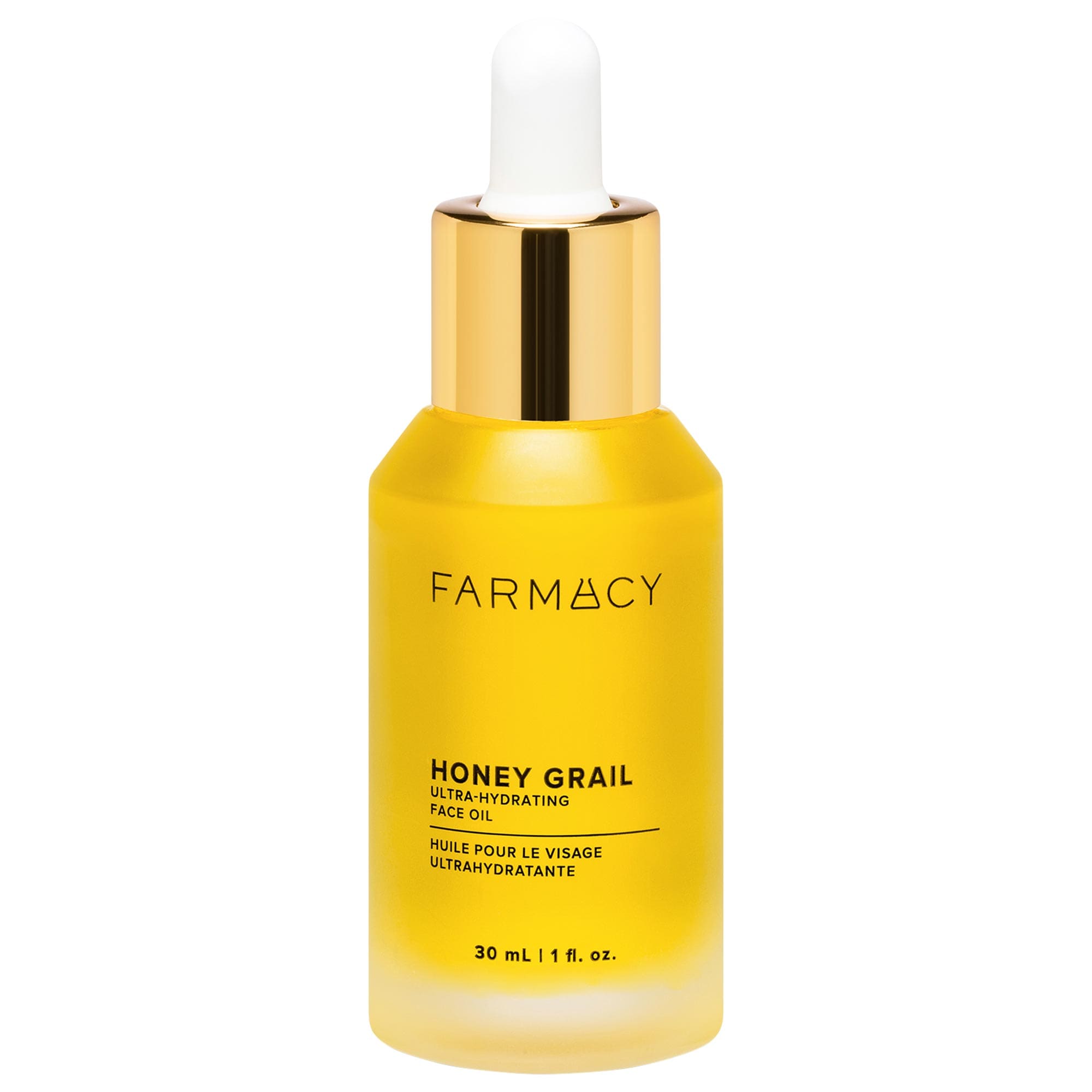
Pros: Offers long-lasting hydration, minimizes fine lines, smooths texture
Cons: None
Key ingredients: Honey, sea buckthorn oil, five-flower oil blend | Skin type: Normal, dry, oily, combination
I'm a big fan of Farmacy products, and this facial oil works wonders for dry skin. The formula is rich in omega fatty acids and honey to lock in hydration deep within the skin, and a blend of sea buckthorn and flower oils reinforces the skin barrier, reducing the appearance of fine lines and wrinkles and evening skin texture with continuous use.
Customer review: "This was recommended by a sales associate at my local Sephora, and she was spot on! This oil feels amazing and absorbs reasonably fast. I have sensitive skin prone to breakouts, and was worried this would cause one. On the contrary, my skin has never felt more hydrated. I often have flaky skin above my lips when the seasons change… No more!"
What to Look for in a Face Oil
- Comedogenic rating: Sobelman points out that the comedogenic rating of your prospective oil is the first thing you should take into consideration before hitting the "order" button. "This is a scale from zero to five rating how pore clogging a plant oil is—zero being the least pore clogging and five being the most," she explains. "Most skin types benefit from oils with a rating of two or lower. Plant oils are made up of fatty acids, essential or otherwise. Having a general understanding of a few of these fatty acids, such as essential fatty acids three, six, and nine (this is often considered nonessential because the body produces it, but it can only be produced if there is enough of three and six), can be helpful in choosing the perfect facial oil for your skin type and needs."
- Soothing formula: Engelman urges you to look at the benefits of your formula before making your final selection. "I always recommend looking at noncomedogenic oils that are rich in antioxidants, essential fatty acids, and anti-inflammatory ingredients," she elaborates. These include linoleic and oleic acids, plus vitamin E and polyphenols, according to Queller. "Sustainably sourced oils without added fragrance or unnecessary fillers are ideal, as they maintain the integrity of the active compounds and minimize irritation," Engelman adds. Oh, and cold-pressed formulas are always a good idea. The process preserves nutrient integrity, says Queller.
- Packaging: You might think the bottle your face oil comes in is purely for vanity, but Queller urges you to consider packaging—optics aside—when selecting your oil. "Dark glass bottles help protect oils from oxidation," the derm explains, which can alter the stability and efficacy of your formula. In addition to keeping your product in a dark, cool place (a medicine cabinet is a great option), dark glass bottles will keep your formula safe from excessive light and heat.

Where in my skincare routine should I use a face oil?
Sobelman says there's more than one way you can apply face oil. "There are a few different camps when it comes to oil application, either before or after applying a moisturizer," she explains. "I think there's a place for both. Ideally, I recommend applying a few drops of oil over your favorite serums prior to applying a moisturizer. This way, the lipids from your facial oil penetrate into the upper layers of the skin, and the ceramides from your moisturizer lock in those lipids, creating a protective barrier. In the evening, if you're feeling the need for even more moisture, you can apply a few additional drops of oil over your moisturizer to enhance this protective layer. This can also be a great step for a balm, such as Luzern's Emulsion 6 or Anfisa's An-Balm. Think of it as a clean slug."
Are there any skin types that should avoid face oil?
Sobelman says all skin types can benefit from using a face oil: "All skin types, even oily and acne prone, benefit from facial oils as long as you find oils with the right fatty acids for your skin's needs. When it comes to most things in the human body, like treats like. Therefore, applying oil to oily skin is actually the best treatment, as it tricks the skin into thinking it has enough oil and begins to back off its natural oil production."
Can people with sensitive and acne-prone skin use face oil?
"Yes—this is a common misconception, but acne-prone and sensitive skin can use face oils when chosen correctly," says Queller. "Look for lightweight, noncomedogenic oils, like squalane or jojoba, that help support the skin barrier and reduce inflammation rather than clog pores," adds Engelman. For acneic skin types, the derms recommend trying just a few drops (one to three) as the last step in your skincare routine a few nights a week and increasing slowly if tolerated. "Always press it over moisturizer to seal in hydration without overwhelming the skin," Engelman reminds us.
What about people with mature skin?
"Face oils can be especially beneficial for mature skin because they help replenish lipids that naturally decline with age, supporting a stronger, more supple skin barrier," says Engelman. Oils rich in omega fatty acids and antioxidants—like argan, rose hip, evening primrose, and squalane, to name a few—are especially great for improving elasticity, promoting softer skin, and diffusing fine lines and wrinkles. "Apply a few drops as the final step in your routine to lock in moisture and keep skin looking plump and nourished," Engelman instructs.
How We Chose
Who What Wear editors decided on the best face oils of 2026 by reevaluating our previous set of winners from 2025—in an ever-changing beauty landscape, it was officially outdated—and comparing it to newer standouts vetted by us as testers and board-certified dermatologists. However, we don't believe that a product is dated just because it's been around longer or that newer, flashier formulas are any better than the skincare heroes we've relied on in the past. We edited our list from 13 picks to 12, removing products that are still great but don't quite stand up to the current competition. We kept some that continue to best newer iterations and added a fresh pick or two thanks to derm recommendations. From there, you get our organized new list of the best face oils for your skin type and budget.
Why Trust Us
AtBest Knockoff Luxury Clothing , we know that beauty isn't one-size-fits-all. Over the years, our editors have tested thousands of products—including skincare, makeup, haircare, and nails—while also working closely with trusted experts, like renowned dermatologists, celebrity makeup artists, and other leading industry insiders. Together, this ensures every guide is well-researched, inclusive, and relevant to you.
We focus on formulas that deliver, whether they're affordable favorites or luxury investments. Our product selection is based on tangible results, ingredient know-how, and what we'd truly recommend to our closest friends and family members.
This article was originally published at an earlier date and has since been updated.
Shawna Hudson is a beauty, wellness, lifestyle, and travel writer with over 10 years of experience. She graduated from California State University, Fullerton, with a degree in journalism and has written for other publications such as Bustle, The Zoe Report, Byrdie, Elite Daily, and more. She is currently a beauty writer atBest Knockoff Luxury Clothing and hopes to continue feeding her (completely out-of-control) beauty obsession as long as she can. Stay up to date on her latest finds on Instagram @shawnasimonee.
- Alyssa BrasciaAssociate Beauty Editor